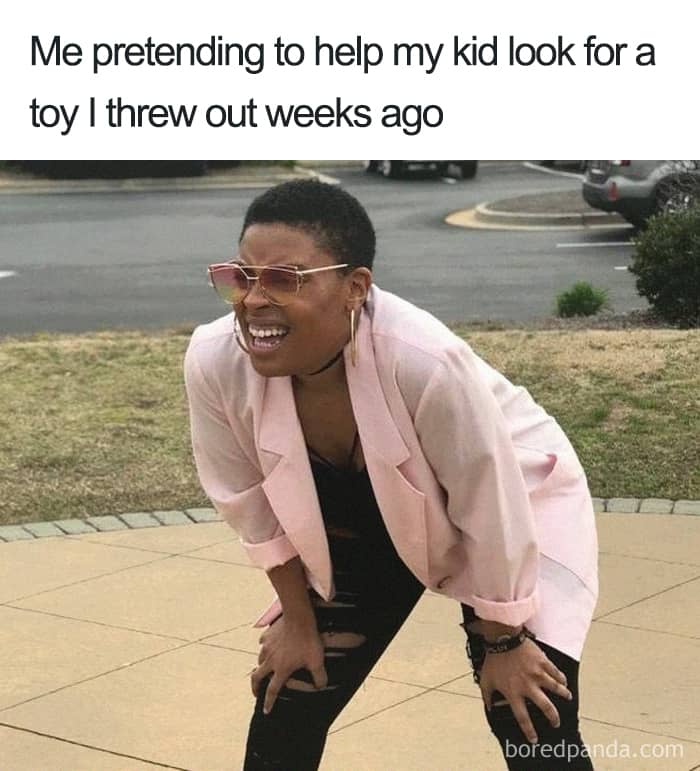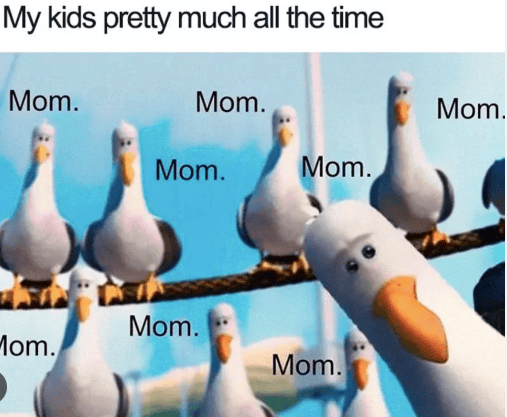How to Explain Mom Burnout to Your Husband – With Script

Motherhood isn’t all rainbows and unicorns. Sometimes it’s more like a hurricane of dirty diapers. But when does “normal” parent stress cross over into full-blown burnout?
And once you figure that out, how the heck do you explain it to your partner without sounding like you’re auditioning for a daytime soap opera?
Don’t worry, I’ve got you covered. We’re gonna break this down step by step, and I’ll even throw in a script that’ll make explaining mom burnout easier.
So grab a cup of coffee (or wine, no judgment here), and let’s dive into the wild world of mom burnout and how to get your partner on board with helping you fight it.
To explain mom burnout to your husband, start by choosing a calm moment to talk. Use “I” statements to express your feelings, like “I feel overwhelmed and exhausted.” Share specific examples of how burnout affects you, and ask for support with daily tasks. Encourage an open dialogue to find solutions together.

What is Mom Burnout?
Okay, so what the heck is mom burnout anyway? It’s not just being tired (though trust me, you’re definitely tired). It’s like your brain, body, and emotions decided to go on strike all at once.
Parental burnout is defined as a state of physical, emotional, and mental exhaustion that results from the chronic stress of parenting.
Learn about the 12 stages of burnout (with an example of each) here.
It’s characterized by feelings of overwhelm, detachment from one’s children, and a reduced sense of parental accomplishment [1].
About 8% of parents are dealing with this mess, and surprise surprise, it’s mostly us moms [2].
You know you have mom burnout if:
- You’re exhausted 24/7, even if you somehow managed to get 8 hours of sleep
- Your fuse is shorter than your kid’s attention span
- You feel like you’re drowning in a sea of sippy cups and dirty diapers
- You can’t remember the last time you did something just for fun

If you want to get sciency, the official symptoms of mom burnout include:
- Chronic fatigue and sleep disturbances
- Increased irritability and mood swings
- Feelings of overwhelm and helplessness
- Loss of interest in activities once enjoyed
- Difficulty concentrating and making decisions
- Withdrawal from social interactions
- Decreased emotional engagement with family members
- Persistent feelings of guilt and self-doubt regarding parenting abilities
And no, this isn’t the same as postpartum depression. That’s its own beast. This can hit you anytime, whether your kid is 2 months or 12 years old [3].
Causes of Mom Burnout
Several factors contribute to the development of mom burnout:
- Unrealistic societal pressure: Apparently, moms are supposed to be Mary Poppins, Martha Stewart, and Superwoman all rolled into one. No pressure, right? [4].
- Lack of support: Insufficient help from partners, family members, or community resources can increase the burden on mothers. It takes a village people! [5].
- The invisible workload: You know, all that mental gymnastics of remembering doctor’s appointments, playdates, and what size shoes your kid wears.
- Neglecting self-care: We’re so busy taking care of everyone else, we forget we’re human too [7].
- Perfectionism: Because if little Timmy’s sandwich isn’t cut into perfect dinosaur shapes, you’re clearly failing as a mother [8].
The Impact of Mom Burnout on Your Family

This burnout isn’t just messing with you. It’s like a tornado ripping through your whole family causing:
- Increased conflict with your husband
- Decreased marital satisfaction
- You’re struggling to connect with your kids (and feeling guilty AF about it)
- Higher risk of child neglect or abuse in extreme cases (scary, but true) [9].
Understanding these potential consequences emphasizes the importance of addressing mom burnout and getting support from your husband.
Once you’ve talked to your husband about mom burnout, feel free to send him over my article, How to Help Someone with Burnout – 7 Practical Strategies
7 Tips for Explaining Mom Burnout to Your Husband

Communicating your experience of burnout to your husband is crucial for fostering understanding and finding solutions together. Here are some tips for approaching this conversation:
- Choose the right time: Find a moment when you’re both calm and have uninterrupted time to talk.
- Timing is everything: Don’t start this convo when he’s just walked in from work or you’re both exhausted. Find a chill moment.
- Use “I” statements: “I feel overwhelmed” is much better than “You never help me!”
- Get specific: “Remember when I forgot to pick up Tommy from soccer because I was so upset?” is better than “I’m always stressed!”
- Drop some knowledge: Hit him with the facts about mom burnout. Men love facts.
- Ask for what you need: Be clear about how he can help. Men aren’t mind readers.
- Be open to dialogue: Encourage your husband to share his perspective and work together on solutions.
A Script for Explaining Mom Burnout to your Husband
Here’s a sample script and roley to help guide your conversation with your husband:
You: “Hey, do you have a minute? I wanted to talk about something.”
Husband: (distracted) “Uh, sure. What’s up?”
You: (sighing) “I’ve been feeling really overwhelmed lately. Like, really overwhelmed. I think I might be dealing with what they call ‘mom burnout.'”
Husband: (looking confused) “Mom burnout? Is that even a real thing?”
You: “Yeah, it is. It’s when moms get super stressed and exhausted from all the demands of parenting. I’ve been reading about it, and honestly, it describes exactly how I’ve been feeling.”
Husband: (skeptical) “I don’t know… isn’t being tired just part of being a parent?”
You: “It’s more than just being tired. I’m exhausted all the time, even after sleeping. And I get irritated so easily – I snapped at Tommy this morning for spilling his cereal, and I felt terrible about it. Sometimes I feel like I’m just going through the motions with you and the kids, and then I feel guilty for feeling that way.”
Husband: (frowning) “I mean, we’re all stressed. Why are you only bringing this up now?”
You: (tearing up a bit) “I guess I felt like I should be able to handle it, you know? Like, isn’t this what moms are supposed to do? But I’m realizing that it’s not healthy for me or for our family if I keep going like this.”
Husband: (softening) “Okay, I can see this is really bothering you. What do you think we should do about it?”
You: “I think I need more help with the day-to-day stuff. Could we maybe look at how we’re dividing up the chores and childcare? And… I know this might sound selfish, but I really need some time for myself. Even just an hour or two a week to do something I enjoy, without feeling guilty about it.”
Husband: “I want to help. What can I do to support you?”
You: “I appreciate that. I think the most important thing is that we work together on this. Could we look at ways to redistribute some of the household and childcare responsibilities? I also need some time for self-care and to pursue my own interests. Maybe we could schedule regular ‘me time’ for both of us?”
Husband: “Of course. I’m sorry I didn’t notice how much you were taking on. Let’s sit down and make a plan together. Is there anything else you need from me?”
You: “Thank you for being so understanding. Just having you listen and validate my feelings means a lot. Could we check in regularly about how we’re both doing with parenting stress? And maybe we could look into some resources together on preventing burnout and strengthening our relationship as parents?”
Husband: “Absolutely. I’m here for you, and we’ll figure this out together.”
Conclusion
Mom burnout is real, it’s rough, and it’s not your fault. By talking it out with your partner and getting the support you need, you can kick burnout to the curb and get back to enjoying this crazy ride called parenthood.
Remember, asking for help doesn’t make you weak – it makes you smart. So speak up, reach out, and don’t be afraid to demand what you need. You’ve got this, and you’re not alone.
Sources
[1] Roskam, I., Raes, M. E., & Mikolajczak, M. (2017). Exhausted parents: Development and preliminary validation of the parental burnout inventory. Frontiers in Psychology, 8, 163. https://www.frontiersin.org/articles/10.3389/fpsyg.2017.00163/full
[2] Mikolajczak, M., Brianda, M. E., Avalosse, H., & Roskam, I. (2018). Consequences of parental burnout: Its specific effect on child neglect and violence. Child Abuse & Neglect, 80, 134-145. https://www.sciencedirect.com/science/article/abs/pii/S0145213418301145
[3] Hubert, S., & Aujoulat, I. (2018). Parental burnout: When exhausted mothers open up. Frontiers in Psychology, 9, 1021. https://www.frontiersin.org/articles/10.3389/fpsyg.2018.01021/full
[4] Henderson, A., Harmon, S., & Newman, H. (2016). The price mothers pay, even when they are not buying it: Mental health consequences of idealized motherhood. Sex Roles, 74(11), 512-526. https://link.springer.com/article/10.1007/s11199-015-0534-5
[5] Sorkkila, M., & Aunola, K. (2020). Risk factors for parental burnout among Finnish parents: The role of socially prescribed perfectionism. Journal of Child and Family Studies, 29(3), 648-659. https://link.springer.com/article/10.1007/s10826-019-01607-1
[6] Daminger, A. (2019). The cognitive dimension of household labor. American Sociological Review, 84(4), 609-633. https://journals.sagepub.com/doi/full/10.1177/0003122419859007
[7] Mikolajczak, M., Gross, J. J., & Roskam, I. (2019). Parental burnout: What is it, and why does it matter? Clinical Psychological Science, 7(6), 1319-1329. https://journals.sagepub.com/doi/full/10.1177/2167702619858430
[8] Lee, M. A., Schoppe-Sullivan, S. J., & Kamp Dush, C. M. (2012). Parenting perfectionism and parental adjustment. Personality and Individual Differences, 52(3), 454-457. https://www.sciencedirect.com/science/article/abs/pii/S0191886911005228
[9] Mikolajczak, M., Brianda, M. E., Avalosse, H., & Roskam, I. (2018). Consequences of parental burnout: Its specific effect on child neglect and violence. Child Abuse & Neglect, 80, 134-145. https://www.sciencedirect.com/science/article/abs/pii/S0145213418301145


